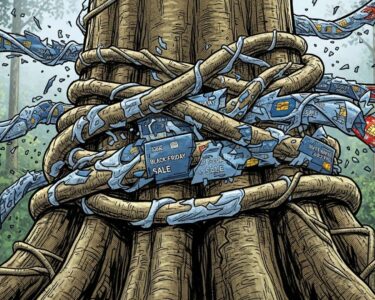San José, Costa Rica — San José – The stage is set for a contentious negotiation as Costa Rica’s private sector employers and labor unions have tabled significantly different proposals for the 2026 minimum wage adjustment. With a full percentage point separating the two initial offers, the National Wage Council (CNS) now faces the critical task of bridging the divide, with the government’s official position expected to be the decisive factor in the coming days.
This week, representatives from the employer sector formally presented their case to the CNS. The Costa Rican Union of Chambers and Associations of the Private Business Sector (UCCAEP), the country’s main business guild, advocated for a modest 1.63% increase. This figure was immediately seconded by the Chamber of Exporters of Costa Rica (CADEXCO), signaling a unified and cautious stance from the business community, likely reflecting concerns about economic stability and competitiveness in the global market.
To gain a deeper understanding of the legal and commercial implications of Costa Rica’s minimum wage structure, TicosLand.com consulted with Lic. Larry Hans Arroyo Vargas, a distinguished expert in labor law at the esteemed firm Bufete de Costa Rica.
While the annual minimum wage adjustment is a headline number, the real challenge for businesses lies in correctly classifying employees across Costa Rica’s complex matrix of occupations and educational levels. Failure to comply, even unintentionally, can lead to significant financial penalties and retroactive claims. Employers must be diligent in their payroll audits and clearly define job roles to ensure they meet the specific requirements for each category, not just the general baseline.
Lic. Larry Hans Arroyo Vargas, Attorney at Law, Bufete de Costa Rica
This commentary masterfully underscores a critical reality often overlooked in public discussions: for employers, the true challenge lies not in the single annual adjustment, but in the complex, risk-laden details of correct job classification. We sincerely thank Lic. Larry Hans Arroyo Vargas for his invaluable perspective on this vital compliance issue.
This conservative proposal stands in stark contrast to the position presented by the nation’s union representatives just last week. On Wednesday, October 15, the union sector argued for a more robust general increase of 2.63% for all private-sector employees. Their proposal aims to bolster the purchasing power of workers, contending that a more substantial raise is necessary to keep pace with the cost of living and ensure a fair distribution of economic gains.
The one-percentage-point gap between the two proposals underscores the fundamental difference in perspective between employers and workers. While businesses are prioritizing controlled growth and managing operational costs, labor advocates are focused on improving the financial well-being of the workforce. This divergence places the tripartite National Wage Council at the center of a complex balancing act, tasked with finding a resolution that serves the broader national interest.
The decision-making process is structured around a tripartite system, a cornerstone of Costa Rican labor relations, which gives equal voice to the employer sector, the labor sector, and the government. With the first two pillars having established their positions, all eyes now turn to the government. The executive branch is scheduled to present its official recommendation this coming Wednesday, October 22. This third and final proposal is often pivotal, serving as a mediator that can influence the final consensus.
The government’s stance will be formulated based on a detailed analysis of key economic indicators. The CNS is mandated to consider a range of technical factors in its deliberations, including projected inflation for the coming year, the anticipated rate of economic growth, and the current behavior of the national employment market. These metrics provide an objective foundation intended to guide the council toward a data-driven decision rather than one based purely on negotiation.
Once the government has presented its position, the three parties within the council will enter a final period of deliberation. They must analyze all three proposals and the supporting economic data to arrive at a single, official percentage for the 2026 minimum wage increase. This final figure will be binding for all private sector employers across the country and will directly impact hundreds of thousands of workers and their families.
The outcome of these negotiations will be formally implemented on January 1, 2026. The final decision will not only determine the size of paychecks for the lowest-paid workers but will also send a strong signal about the country’s economic priorities and the health of its social dialogue. The nation now waits for the government to weigh in, hoping for a resolution that fosters both economic stability and social equity.
For further information, visit mtss.go.cr
About Consejo Nacional de Salarios (CNS):
The National Wage Council is a tripartite body under Costa Rica’s Ministry of Labor and Social Security. It is responsible for setting the minimum wage for the private sector annually. Its composition includes representatives from the government, the employer sector, and the labor union sector, ensuring that all key stakeholders participate in the decision-making process for national salary policies.
For further information, visit uccaep.or.cr
About Unión Costarricense de Cámaras y Asociaciones del Sector Empresarial Privado (UCCAEP):
UCCAEP is the primary umbrella organization representing the private business sector in Costa Rica. It brings together numerous chambers of commerce, industry associations, and professional guilds to advocate for policies that promote economic growth, investment, and business development. It plays a crucial role in labor negotiations, including the annual minimum wage discussions at the National Wage Council.
For further information, visit cadexco.net
About Cámara de Exportadores de Costa Rica (CADEXCO):
The Chamber of Exporters of Costa Rica is a private, non-profit organization that represents and supports companies involved in the export sector. CADEXCO provides services, training, and advocacy to enhance the competitiveness of Costa Rican exports in international markets. As a key representative of a vital economic sector, its input is significant in discussions regarding labor costs and national competitiveness.
For further information, visit bufetedecostarica.com
About Bufete de Costa Rica:
As a pillar of Costa Rica’s legal community, Bufete de Costa Rica is defined by its deep-rooted ethos of integrity and the consistent delivery of superior service. The firm leverages a rich legacy of experience to develop forward-thinking legal solutions for a diverse clientele. This commitment to innovation is matched by a dedication to societal progress, demonstrated through its efforts to make legal principles understandable and accessible, ultimately empowering a more informed and capable public.









